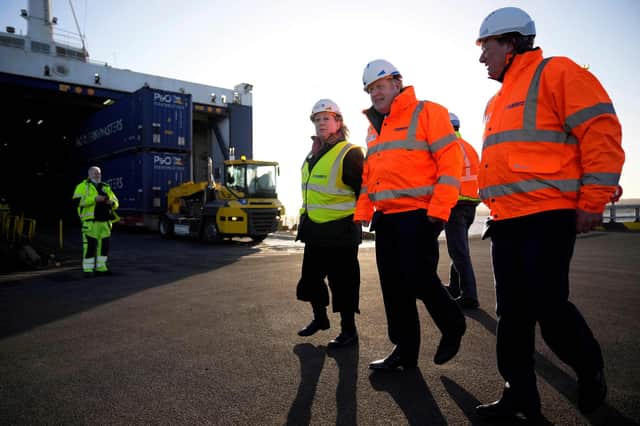Ownership of Scotland's ports is a political issue. Or at least, it should be – Kenny MacAskill MP


After all, irrespective of what sites are chosen, Scotland's trade will continue to be dominated by traffic on its main estuaries and through major ports on the Forth and Clyde in particular. But who operates them?
Vox pop a punter in Leith or anywhere on the Forth asking who owns the major ports and many might say the state or others a rich private investor.
Advertisement
Hide AdAdvertisement
Hide AdBut port privatisation was brought in by the Tories in 1992 and, in 2018, Forth Ports was acquired by – wait for it – the Canadian Public Sector Investment Board, a Canadian crown corporation, a state body, charged with looking after pension investments of Canadian workers.
Of course, does it really matter who owns them? Well, it does because it impacts on policy and investment. Their duty is to enhance the funds for Canadian pensioners, not grow the Scottish economy or look after the interests of port communities; and they have a significant impact on both.
Forth Ports owns the major estuary ports, Grangemouth, Rosyth, Methil and Burntisland, along with Dundee up on the Tay.
But they also own Tilbury, in the Port of London which, with 34 container berths and a flagship cruise liner depot, is the jewel in the crown. More trade goes through Tilbury alone than all their Scottish ports combined.
So, what effect does that have on investment policy and strategy? With the principal owners in Canada focused on revenue return and safe investments, and with operations focussed on the Thames, where does that leave the River Forth and those who live by it or trade on it? Bereft, I’d say.
And what of the Clyde? Again, stop someone on the Broomielaw and ask who owns Clydeport and it’ll be much the same, the state or some local big shot.
But after privatisation, Clydeport which operates Glasgow, Greenock, Hunterston, as well as Ardrossan, was acquired by Peel Ports plc which is owned by a wealthy private investor.
Mirroring the situation across on the east coast, they also own the Port of Liverpool, along with Heysham, Great Yarmouth and Medway on the Thames. As with the Forth, trade on the Clyde’s eclipsed, this time by the Mersey. Where’s the incentive to invest?
Advertisement
Hide AdAdvertisement
Hide AdThey also own Cammell Laird shipyard at a time when Ferguson’s, the last remaining yard on the Lower Clyde, is under threat.
Indeed, Peel Ports recently acquired a dry dock in Port Glasgow to use as a breakers yard which Fergusons had hoped to use to expand shipbuilding. Ask yourself, which is the higher skilled and more profitable work?
Freeports are a sideshow, it’s time the Scottish government developed a ports strategy and one where if you can’t own, then you can regulate. These are vital assets to Scotland and coastal communities, they need a say and their interests, not those of absentee owners, must prevail.
Kenny MacAskill is Alba Party MP for East Lothian
A message from the Editor:
Thank you for reading this article. We're more reliant on your support than ever as the shift in consumer habits brought about by coronavirus impacts our advertisers.
If you haven't already, please consider supporting our trusted, fact-checked journalism by taking out a digital subscription.
Comments
Want to join the conversation? Please or to comment on this article.

